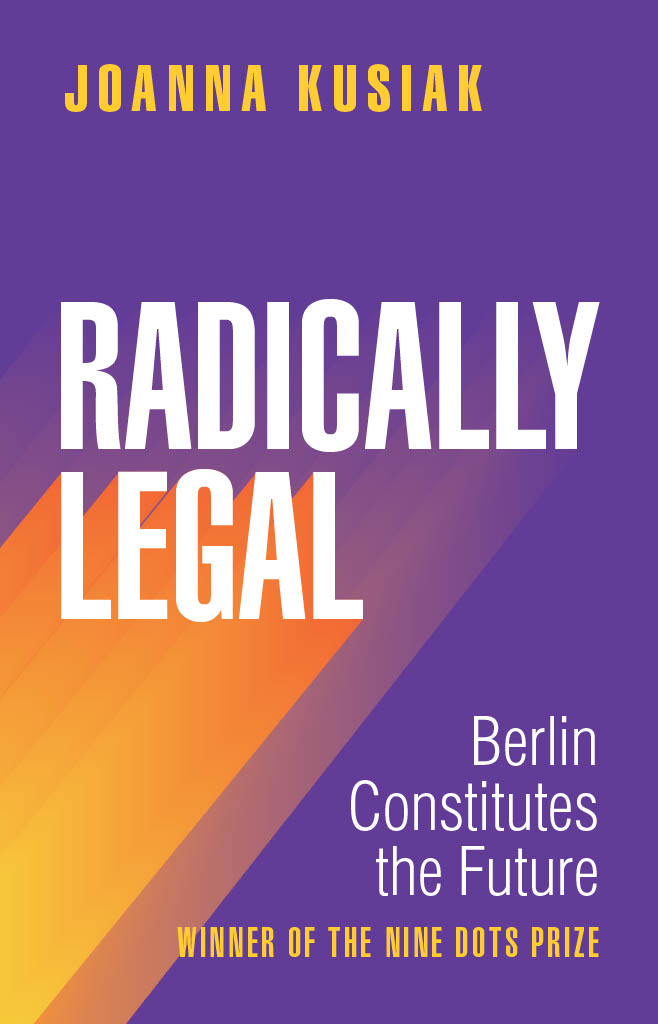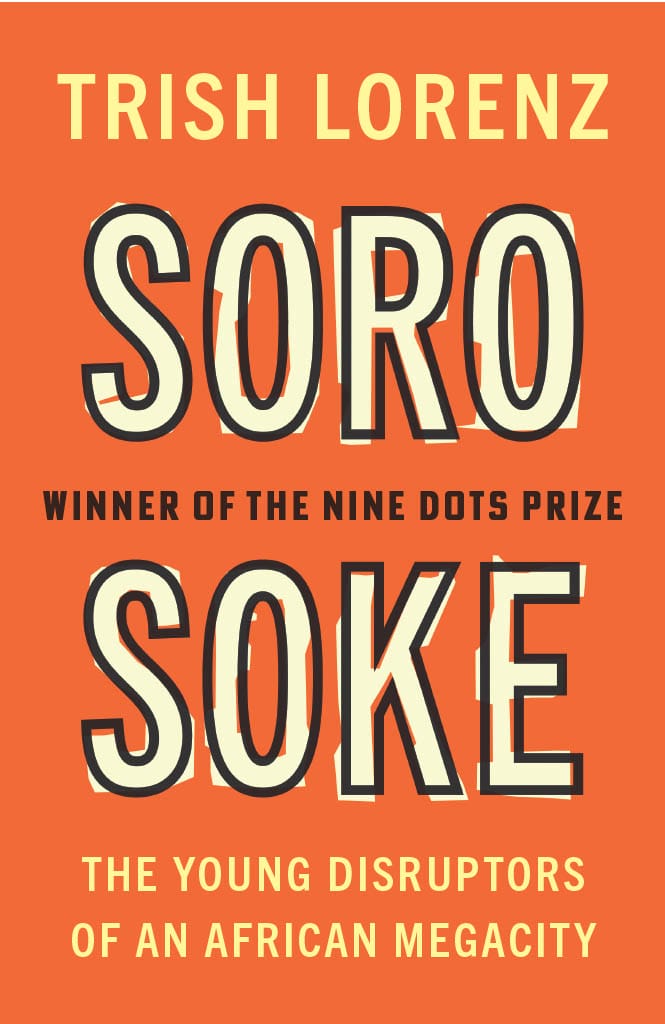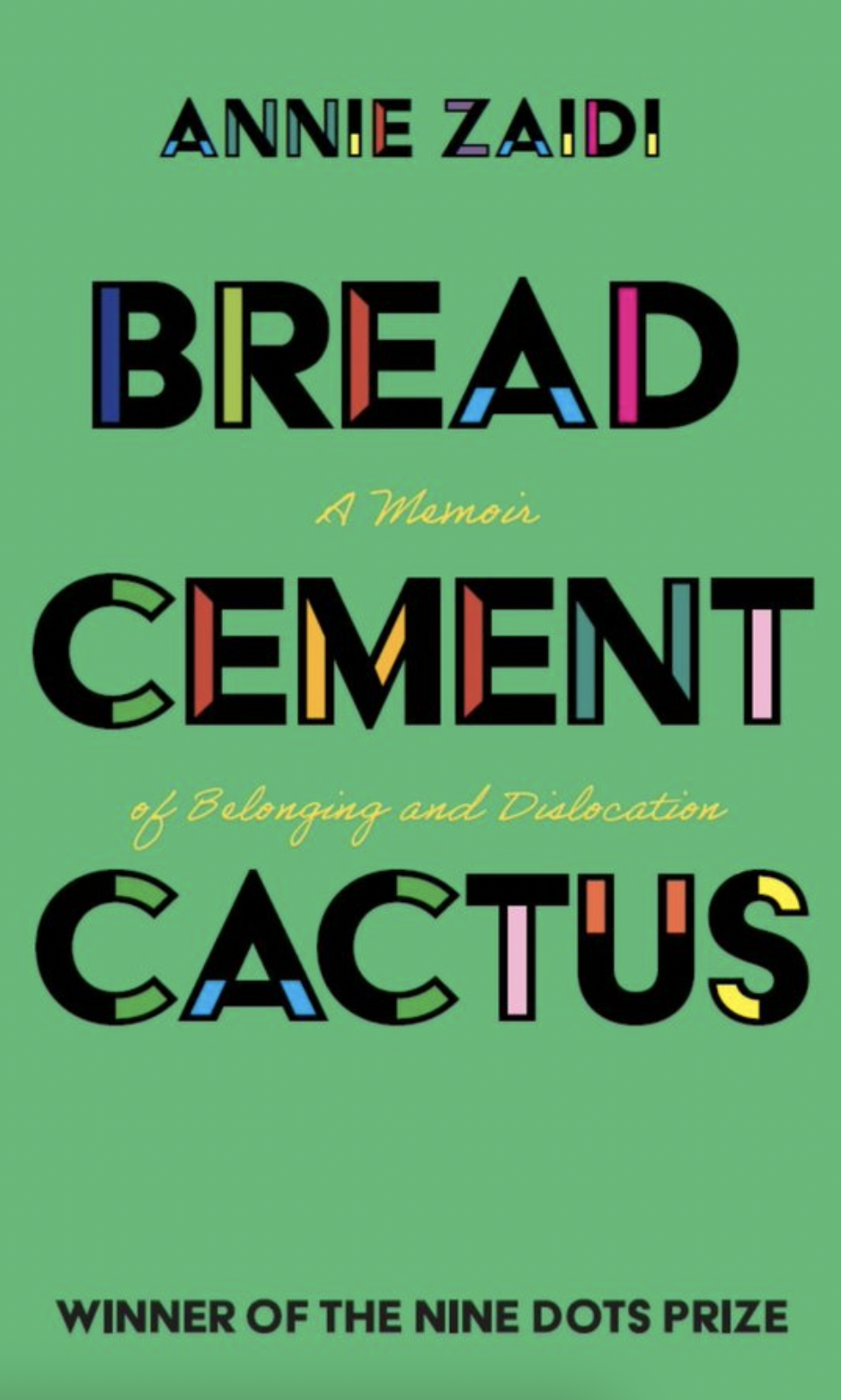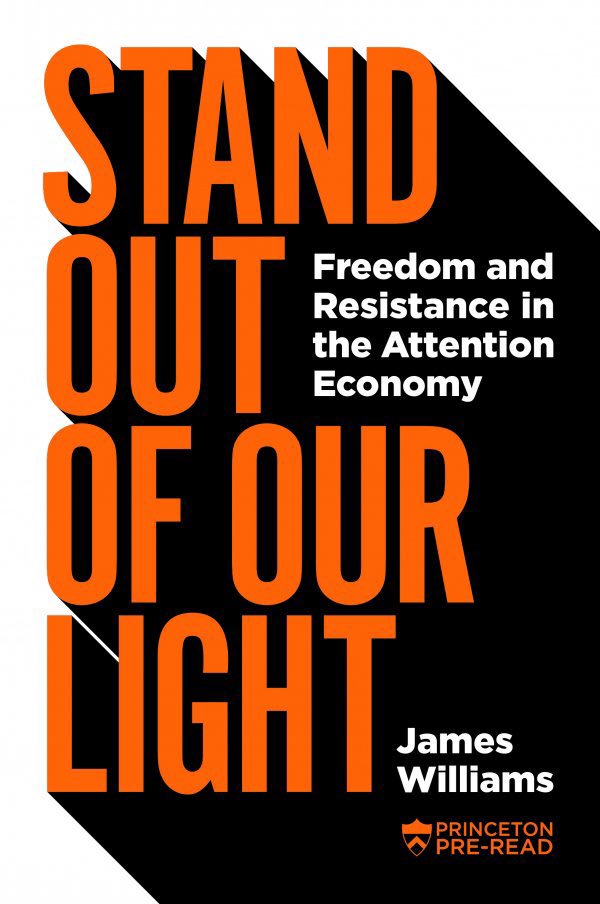Transcript of Nine Dots Prize podcast 8: ‘Endings’
11 November, 2024
Nine Dots Prize podcast: Endings (2024/2)
Jane Tinkler
Welcome to this podcast from The Nine Dots prize, the sixth we have released now. I’m Jane Tinkler, Senior Manager for the prize, and we hope that this podcast will help inspire and support anyone interested in applying for the prize, or just generally interested in writing nonfiction. Sometimes when you’re in the middle of a writing project, it can feel like you’re following a yellow brick road heading towards an unknown destination. But, as L Frank Baum, the author of The Wizard of Oz, says, everything has to come to an end, sometime. So, in this episode, we’re going to focus on the finishing line that every writer has to cross – ending their piece of writing.
Hari Kunzru
I think it’s been very rare that I’ve known the ending to a big project when I’ve started it. But there’s a certain point where you need to know what you’re writing towards.
Catherine Carr
You know, I judge a good book by that feeling of like I cannot bear to leave this world and these people. So, I think a good ending is absolutely priceless.
James Williams
I think it’s really is just hard to give one general answer about what counts as a good ending, because I think there is probably as many kinds of good endings as there are good pieces of writing.
Jane Tinkler
There’s an art to crafting a good ending. That’s why we’ve picked the brains of three brilliant people who encompass different perspectives, who have honed this skill. Please introduce yourselves.
Hari Kunzru
My name is Hari Kunzru. I’m a novelist and non-fiction writer. I was brought up in London, but I live in Brooklyn, New York, where I also teach. I’m a professor at NYU creative writing department.
Catherine Carr
My name is Catherine Carr and I’m a podcaster and host and radio producer.
James Williams
My name is James Williams, and I’m a writer and Technology Advisor, and I was the winner of the very first Nine Dots prize back in 2017, 2018.
Jane Tinkler
This could be you in 2025!
James Williams
I think of a good ending as being one that’s true to the effect that the author or artist wants to achieve. And that can vary a lot from case to case. You know, there might be some cases where wrapping things up narratively or logically, as much as possible is the best thing for that piece of writing. There might be cases where leaving things open ended, leaving a sense of possibility or wonder is the best thing.
Jane Tinkler
It’s already clear – there is no formula. An open ending can leave the reader positively ponderous, intrigued to learn more about the topics covered. But with such open endings, it’s important that the reader takes away a clear impression of the piece.
Catherine Carr
I’m not a fan of ambivalent endings, so I quite like it when there’s a definite moment where I know what it was that I was supposed to take away from whatever it was I was listening to, or making. It sounds like I’m always going for sort of neat little bow, and it might be a bit naff. I’m not. I think it’s good for something to live with you, like a good book that you kind of can’t quite leave the book world behind like some lingering feeling is good. It doesn’t all have to be resolution.
Jane Tinkler
The podcast that Catherine Carr presents is called Where Are You Going? The premise of which is to engage strangers in conversation. It starts randomly, and where it will end is always a mystery.
Catherine Carr
I do more show than tell in the stuff that I do. And so, I think when it comes to a conclusion, for me, it’s almost always an invitation to think more. It’s never usually well, on the one hand, this, and on the other hand that, therefore this. So, I guess the ending of a lot of my work is the beginning of a lot of conversations, if that doesn’t sound too confusing. I’m offering up what I make for people to then go away and do some of the chewier analysis.
Jane Tinkler
So, a good ending sparks intrigue and starts a conversation. And, as writer Hari Kunzru says, at the heart of this is triggering an emotional response.
Hari Kunzru
I think whatever it is, in whatever form an ending has to ring an emotional bell of some kind. It can be a definitive ending where everything is wrapped up and you feel something’s closed. Or it can be very open ended. I think formally, you have both options there. But whatever you do, you need to feel a tone of some kind. One of the kind of great endings in culture is the ending of The Great Gatsby, the Scott Fitzgerald novel. And he ends with a kind of reflection on time, this image of boats beating backwards, ceaselessly into the past. It’s this kind of, it feels, he makes this is a very short book, actually, he makes this book feel elegiac, and feels everything that he has shown you up to now about this troubled relationship and this group of people who are in many ways bad people, he just wraps it up in in this particular kind of emotional tone that makes the whole thing seem devastatingly beautiful and I aspire to one day, one day, kind of making something as good as that.
James Williams
There are the endings that are kind of iconic. You know, he loved big brother, you know, where you don’t even need to say the name of the name of the book, everybody just knows
Jane Tinkler
Orwell’s 1984, a classic.
James Williams
When I think about the endings that really resonate with me, there tends to be some kind of elevation in the tone, some kind of poetic move or twist, almost a payoff, emotionally in a way, for having read the whole piece of writing. Another ending, I guess, from nonfiction, from philosophy, that sort of memorable is, you know, Wittgenstein’s the Tractatus, the very last sentence of it is ‘whereof one cannot speak thereof one must be silent.’ Good ending ought to give you goosebumps in one way or another.
Jane Tinkler
We’re taught in schools, universities and writing classes to plan, plan, plan, structure our beginning, middle and end before we start. But as Hari cautions, sometimes over planning can stifle possible paths forward.
Hari Kunzru
A mistake that writers often make is to foreclose things, is to hit on a decision too quickly, just the one that seems to work and that you can understand how to do it, rather than it being the best decision. And I think often holding off from a very precise understanding of your ending for as long as you can bear, it can be a useful thing to do
Jane Tinkler
Part of being a writer is holding your nerve.
Hari Kunzru
Over planning can make you feel like you’re just grinding out something and all the kind of great creativity has happened. And so I think you need to give yourself space in any creative day’s work for something to turn up, for something unexpected, something you know, serendipitous and something beautiful.
Jane Tinkler
So keep the core of your idea or argument at the back of your mind. And as Catherine has found, the perfect ending may emerge when you least expect it.
Catherine Carr
I never know where something’s going to end, and sometimes I don’t even know that I’ve actually finished it, but I have. And so when I’m editing, sometimes I think, God, this is so hard. I don’t know how will this end. I’ve been working on it forever. I just don’t know how, oh, it’s finished. And I wonder if, I wouldn’t be so grand as to compare it to visual art, but I wonder if that’s what visual art can sometimes be like, you don’t know that you’ve nearly finished painting, and then all of a sudden, one day you have and you didn’t know you were going to that day. So that’s how I often feel about endings. I certainly am not like those writers who say they, you know, they write the last line of the novel and they go back to the beginning and start again. I just cannot fathom that.
Jane Tinkler
It’s natural to want to end your piece with an ideological or emotional bang. But I love this idea that if you’re attentive to it, the ending finds you. It’s with you on the road.
Catherine Carr
This feels really strange, and only occurred to me when I was thinking about this interview. But I almost feel like diving, almost like you’re on the surface of the water, and then you kind of dive down and you can’t end down there for whatever reason. It’s too hard, too sad, too confusing to something, and then you have to go back up to the surface again. And I was watching Glastonbury, I was watching the Coldplay set at Glastonbury. And they had lots of points where I thought, is that an ending, surely not, Surely not. And then they had Michael J Fox on doing Fix You, and he’s in his wheelchair. He has Parkinson’s. He’s playing the electric guitar. It’s incredibly moving. And then I thought, they are not going to end it there. That’s like being led down to the bottom of the sea emotionally. I was in pieces. And of course, they didn’t end there. They then did another song that was all full of love and hope took you back up to the surface again.
Jane Tinkler
It’s normal to grapple with what you want to achieve with your ending, but don’t force it. Every project is unique.
Hari Kunzru
I think different projects have different shapes, for sure, and one of my psychological tics is I’m usually trying to kind of change it up from the last time. So I mean, I think I have a pattern of trying to make something that feels very wrapped up, very achieved, like which would have a sort of definite ending, and then wanting to do something that feels maybe more like formally diffuse or pushing at boundaries a bit more and that kind of project might have a less straightforward ending.
Jane Tinkler
Let’s hear how Hari Kunzru approached this internal negotiation in his novel Red Pill, tracking the breakdown of a middle aged writer and the experience of betraying a partner.
Hari Kunzru
So we must find each other. We must remember that we do not exist alone. Ray rolls over in bed to face me. If it gets bad, she asks, where will we go? Together we say the names of cities. Together we talk, holding each other, imagining escape routes. Sometime during the night, Nina crawls into the bed and joins us. Outside, the wide world is howling and scratching at the window. Tomorrow morning, we will have no choice but to let it in. I mean, what I’m hoping that somebody takes from that is, you know, is a sense of fragility and hope. I mean, these people are still together. They’ve, bad things have happened between them. Nina is the child of this relationship and so that’s where I want the reader to be, to be left, neither with a kind of straightforward everything’s going to be fine or everything’s going to be a disaster but these are two damaged human people who can kind of maybe go on together and find a future. And that was very much the emotional beat that I wanted to hit with that book.
Jane Tinkler
The Nine Dots prize is all about creative thinking that tackles contemporary societal issues. James Williams took on this challenge in 2017, going on to turn his winning essay into his book Stand Out of Our Light, Freedom and Resistance in the Attention Economy. We already know that James values an emotional payoff. What did he want to convey with this ending?
James Williams
One of the main arguments of the book is that there’s something really wrong with the way that technology in our time is influencing our attention, shaping our behaviour, our habits, and that there’s something really at stake that’s a lot bigger than just kind of distraction in the moment. One thing I really wanted to do with the ending was end on, I think, a note of realistic hopefulness.
Jane Tinkler
Let’s hear how James captured this in his final few lines then.
James Williams
I’ve also sought to encourage and guide the attention of others who share my deep concern about this vast infrastructure of technological persuasion we’ve inherited. But who also, like me, take solace in encountering others on this road who see the same problems and respond to them with the same vigor of inquiry that I’ve been fortunate enough to enjoy in the writing of this book. In order to do anything that matters, we must first be able to give attention to the things that matter. It’s my firm conviction now more than ever, that the degree to which we are able and willing to struggle for ownership of our attention is the degree to which we are free.
Hari Kunzru
The first time you write like a novel length project or, you know, a long non-fiction project, it’s everything to you. It’s your book, and it feels like it will define you very completely. And so it has to be absolutely perfect and it’s very, very hard to give that up and think, well, if I’d only done a couple more days, I could have made it 1% better
Jane Tinkler
When you approach the end of any lengthy project, it can be hard to avoid the temptation to endlessly edit, but it’s vital to reflect and ultimately move on.
Hari Kunzru
And then after a while, you realise that this is, this isn’t your only act, your only kind of creative identity isn’t wrapped up with this one text, you know. You finish something and then you do something else. You carry on. Obviously, like revision is important, and being kind of stern with yourself is important. But ending a book is also a very strange thing. I think we need to, we need to, in a really nuts and bolts way say that if you’ve not written and published a book, you don’t know how oddly diffuse the feeling of ending is, because you end a draft and you send it to your editor. You maybe, you do some revisions and you end it again. Then maybe you do a copy edit and you end it again, and then you’re tinkering with it on proofs, and you kind of end it again. I mean, the thing is only really finished when it’s pried away from your hands and then, you know, and it turns into an object in a bookstore. People often say that, you know, you don’t feel that you’ve ended so much as you’ve just kind of, you know, let it go.
Catherine Carr
I think the other thing with an ending a lot like, I guess, art or poetry, visual art or poetry. Once you’ve done what you’ve done, and the people who’ve contributed have given what they’ve given, then really, there’s a lot about how people encounter what it is that you’ve made, like what mood they’re in, whether they’re in the car, whether they’ve got headphones on, good mood, bad mood, what life experience they bring. I think part of walking away from it when you’ve really fiddled and fiddled and worried and worried is acknowledging that you can’t control how people feel about the work and how they feel about the conclusion and how that might resonate with them individually. And I think that’s perfectly healthy.
Jane Tinkler
Crafting a brilliant response that stands out to an open question is the essence of The Nine Dots prize. What do our guests keep in mind when creating and wrapping up a response to a question?
James Williams
I think when answering a question like The Nine Dots, prize question, you’re kind of showing an entrance to a rabbit hole. But you also want to say, you know, how deep does the rabbit hole go? So, give a sense of the possibility, a sense of the scope. I think it can be useful to kind of restate or rephrase the question in order to sort of express how you understand the question, partly for the benefit of those reading your response, but also for yourself to clarify how you’re understanding it. So, for example, in my round several years ago, The Nine Dots question was, are digital technologies making politics impossible? And I think all The Nine Dots questions are interesting in that they all have a certain kind of little twist. So, I think reframing, restating the question, just to express how you understand it, can be useful
Catherine Carr
For me, one idea of a good ending might be one that is a bit circular, so the end refers back to the start, particularly if you’re thinking about the idea of going little, big, little, if you like, were personal, impersonal, personal. So, I made a series about boys recently. The boys at the beginning were kind of fun. The boys were all the way through, were fun, and at the end, the boys were definitely fun. They were kind of giggling, and we talked about lots of hard things in between, and they were having a laugh at the end. And then they sort of invited us to think about their lives going forward. So, it did two things. You know, it’s not that cute little bow. It’s like, here we are, we were here all the way through, you’ve thought about lots of difficult things, we’re still here having a laugh but also, we’re just on the cusp of adulthood, or whatever it is. So, it had had both of those things
Jane Tinkler
With an essay, you only have so many words to play with. So, try to be concise and really think about the beats you want to hit.
Hari Kunzru
I think you have to be pragmatic about what you can do within the words that you have. You can’t make definitive answers. You can’t answer every possible objection. I write a lot of essays about politics and social issues like this, and I think a lot of what people want from them isn’t necessarily a full policy prescription. You know, although, if you seem like you might know some answers, people are always happy to hear them. But one of the things that you know, especially with things that people are really worried about or scared about or uncertain about, is they want to know that there are other people there who are thinking through them and who are, you know, they want to be able to kind of put something down and say, yeah, that’s how I feel, too.
Jane Tinkler
The question for this year’s Nine Dots prize is, Is data failing us? So over to you. Start following that yellow brick road, and before you know it, your ending will be in sight. Let’s end this podcast with a final nugget of advice from each of our guests.
James Williams
On the point of originality, it’s just as important to think about what you don’t say as what you do say. So you know, are there common concepts or phrases or memes or topics that you know everybody is basically going to be talking about? Because we know we’re all in this networked world and seeing the same media and reading the same things and watching the same YouTube videos. What is the sort of, you know, outside the box, orthogonal thing?
Hari Kunzru
Try and be clear, try and check that you actually believe what you’re saying, rather than it just sounding good, and don’t feel that you have to solve the problem in your short piece of writing, because that’s not something that’s reasonable to expect.
Catherine Carr
Maybe start by thinking what the purpose of the thing you’re going to write is. So is it call to arms, or is it a motivation, or something to inspire, or is it just jam packed with facts? So yeah, that would be my advice. Work out what it’s for and then work backwards.
Jane Tinkler
So, until next time. Thank you to Loftus Media, who produced this podcast, to Harry Kunzru, Catherine Carr and James Williams, who has one final thought for you.
James Williams
Another thing I would suggest thinking about are the unique perspective that you have on the topic. No one in the world has the perspective that you have. No one has that exact configuration of experiences that you bring to the question you.



